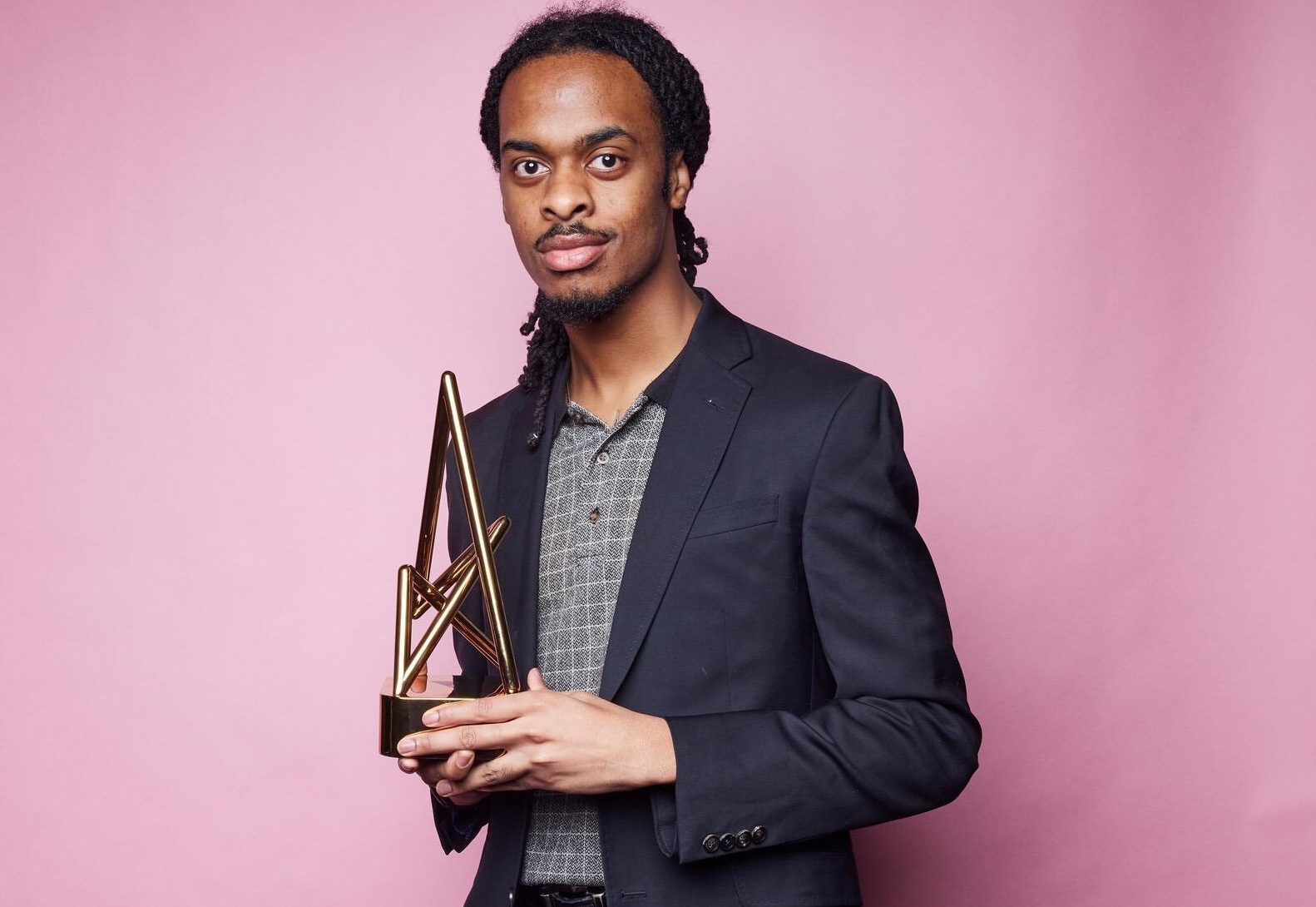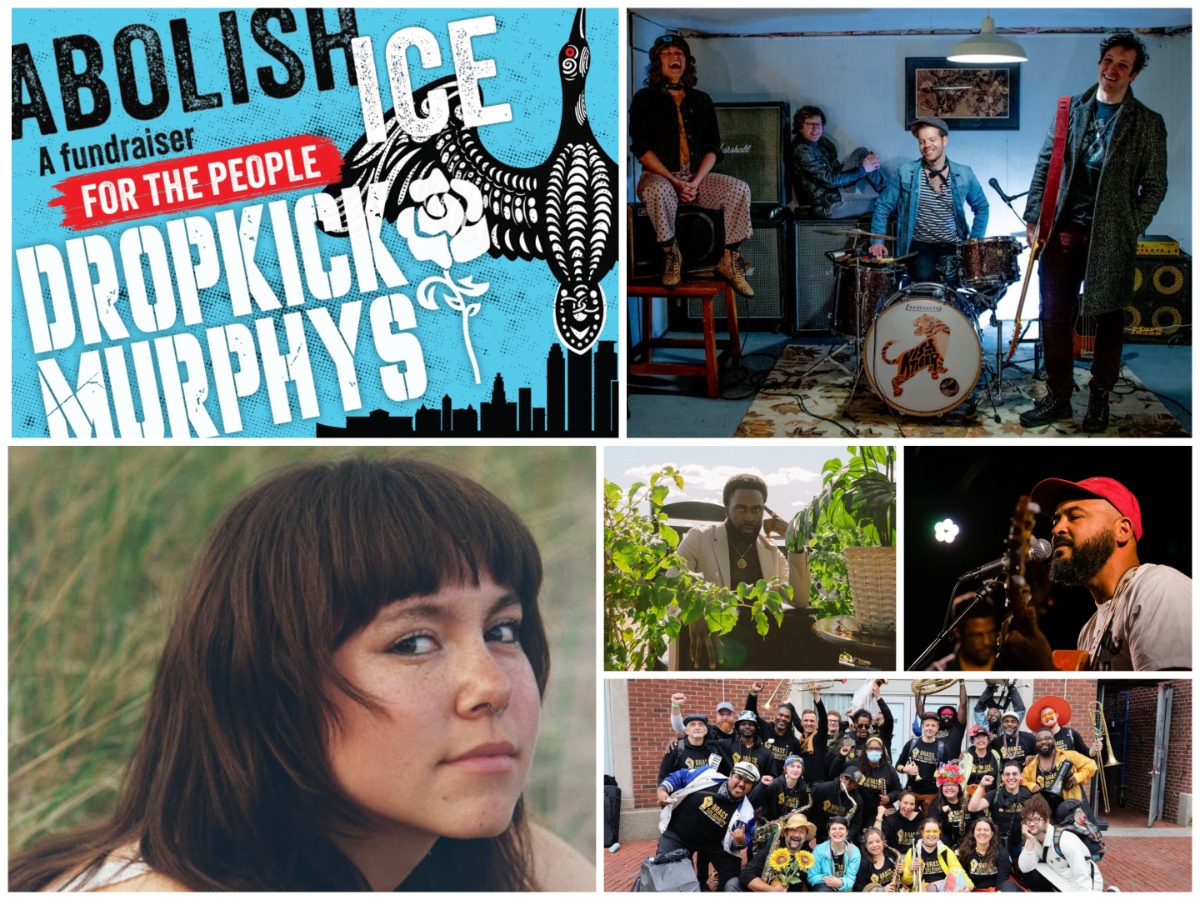All important business is done over golf. So naturally when time comes for a summit between two major Twin Cities media figures like, ahem, myself and Julian Green of Minnesota Public Radio's Carbon Sound, we meet on the links—for 18 holes of whimsical mini golf, on a typically raucous Sunday morning at kitschy St. Paul fun emporium Can Can Wonderland.
As we wait in line for wristbands, I tell Green our scores won’t make it into the story unless I win—that’s a writer’s prerogative. He wonders why I’m hedging my bets. “I thought your people were supposed to be good at golf,” Green remarks, deadpan. And I hang my white, male, middle-aged, not-good-at-golf head in shame.
At just 24, Green is the content director of Carbon Sound, the urban alternative stream/website that MPR established last summer. (“I hate the word ‘content,’” he clarifies.) With on-air host Sanni Brown as the stream’s voice and Andre Griffin ginning up community engagement, you might call Green the architect of this new venture. In this, he’s continuing the work he began a few years back as program director at Radio K, where he established The Vanguard, a 24-hour hip-hop stream that has continued after he graduated.
But the new entity’s ambit stretches beyond rap. “Our goal is to present the depth, breadth, and influence of Black musical expression,” Green says, using the Carbon Sound tagline he’ll return to repeatedly, almost like a mantra. A typical setlist gives some concrete examples of what he means. As I’m writing this, Carbon Sound has played lite-funk locals Fruitpunchloverboy alongside the young Cuban jazz singer Daymé Arocena and segued from rising rapper 454 into Earth Wind & Fire’s “Shining Star.”
Prior to golfing, we settle in a relatively quiet spot to discuss how Green has become a point man for expanding the reach of Black music in the Twin Cities, where it has historically been underrepresented, particularly in radio. Yes, yes, yes—Prince, the Minneapolis Sound, we know all that. But with no commercial radio station dedicated to Black music and major rap tours still often skipping past us on the way from Chicago to the West Coast… well, to put it kindly, we've still got some room to grow.
Fortunately, Green has a deep, resonant voice that cuts through the joyful din of child-ing children and Bryan Adams doing everything he does for you over Can Can's speakers. Though his conversation occasionally slips into the practiced patter of someone who’s had to pitch a mission statement repeatedly, he’s candid when it comes to discussing the opportunities he’s presented with and the challenges he faces—and even more candid about how he’s coped with changes in his personal life during the pandemic years.
Green was raised in Milwaukee and moved to Minneapolis to attend the U of M, where, like so many music obsessives, he found a home at Radio K. But that space wasn’t immediately congenial for someone who was at times the only Black staffer. Though he fondly recalls his time at the student-run station, there were, he says, “some weird moments, feeling a little out of place—but that’s just kind of the reality of being Black in Minnesota.”
Though an omnivorous listener, Green didn't have much time for radio in his years before college. “By the time I started driving, aux ports had become a thing,” he says. (Spoken like someone who's too young to remember cassette adaptors...) His musical tastes in those all-important teen years were shaped by tracks and playlists he scouted online, as well as some less expected sources.
“Hip-hop has always been kind of the center, like the sun for me,” he says. “But I was exposed to a lot more rock and metal and stuff because I used to play a ton of Rock Band and Guitar Hero.”
WIth that in mind, we get to the big question: How do you make radio relevant for people your age?
“I don’t know if you can,” Green says simply. And that belief shapes Carbon Sound.
“We’re thinking bigger than just radio," he continues. "Radio is important, our stream is important, and we put a lot of time and effort into it, and we always will. But there are so many different ways to reach people and so many different tools to use, to where we don’t have to fight Spotify. We can work with YouTube, we can work with TikTok—we can even work with Spotify.”
In fact, when talking about his goals for Carbon Sound, Green’s comparisons are drawn from outside conventional radio.
“I want Carbon Sound to be like the radio station in the Grand Theft Auto games,” he says. “There’s some familiar stuff but you just discover so much new music. You’ll hear people say that the Non-Stop Pop station in Grand Theft Auto V really shaped their music taste, people my age. That was their first time hearing ‘Music Sounds Better With You,’ by Stardust. I kinda just want to recreate that feeling for new people.”
Or how about this TV comparison?
“I kind of think of Carbon Sound as Adult Swim, where the whole thing is like you go there because you don’t know what you’re going to get—could be Robot Chicken, could be American Dad, could fuck around at 2 a.m. and see Xavier Renegade Angel and be traumatized, but it’s still a consistent experience.”
Any listener with tastes as wide-ranging as Green’s would be frustrated with the narrow definition of “Black music” that persists in our culture.
“People’s conceptions of the music that Black people make are very narrow—and that includes Black people’s conceptions," he says. "In fifth grade I remember trying to tell my friends “No, Black people made rock, and them arguing with me and not believing me. Which is really fucked up. Like, damn, you can’t even see that for yourself?”
But if this is the case, can an eclectic public radio music stream draw Black listeners?
“I can’t control who the audience is gonna be. That’s just the reality of being Black and trying to do anything. Part of my goal for the rest of the year is to bridge the gap between the quote-unquote alternative Black people that hang out in one circle and the quote-unquote street shit, that’s another circle. We want to show people that there are a lot of different ways to be Black it in a way that isn’t contrived or corny.”
When pressed to identify what he finds corny, Green shrugs: “Corniness is so ephemeral, I don’t know how to define it—it’s like what they say about obscenity, I know it when I see it.”
The last time I saw Green before our golf date was in early March and he was onstage at the 7th St. Entry. Reluctantly, it turns out. As ech0astral, he stepped in at the last minute as a replacement DJ, though he says he’s leery allowing his own musical pursuits to overlap with his Carbon Sound duties. He’d begun uploading mixes to SoundCloud in 2020 that marked him as a disciple of DJ Screw, but the accelerating breakbeats driving his tracks at the Entry (including a “Boy’s a Liar” remix that got a knot of girls near me hyped) indicated a turn toward jungle, a style he speaks of almost reverently. “All these different elements from the diaspora are coming together—you have an ‘Amen' break, you have rapping, you have samples from all these different songs, all coming together to form this beautiful amalgam.”
The crowd that night was young and stylish—”diverse,” as we say whenever Black people and white people coexist in the same room. Carbon Sound couldn’t ask for a more flattering visual representation of its listener base, even if the attendees might have been drawn there less by brand allegiance and more to see two energetic Cedar-Riverside performers on the bill. Both killed it. The relatively seasoned Huhroon, with his full band, held the stage with the ease of a musician fully hitting his stride. But the surprise of the night was the natural stage presence of an 18-year-old rapper named sahn, whose youth blows Green away. (“The good part of Spongebob was already over when he was born,” he gasps.)
For its next event on June 19 at the Fine Line, Carbon Sound has gathered a DJ-driven lineup in honor of its own first birthday, an affair that doubles as a Juneteenth celebration. Headlining is Byzzara, the latest alias of queer Afro-Chicanx DJ Cristian Ybarra (previously best known as DIE/Aspora), pan-genre DJ Yhante, self-described “culture rapper” Fanaka Nation, and several others including (who knows how eagerly/reluctantly) ech0astral.
“I’m looking forward to being able to have new unique events that maybe people haven’t thought of,” Green says, noting the lack of local showcases centered on Black music. “There’s no more Go 95; there’s no more Soundset.”
Even before the pandemic, the ground was being cleared of local institutions, leaving a vacuum that may make the creation of new institutions possible. You might call Green’s own career a product of the pandemic. He graduated from the U in 2020, which means his tenure as program director ended with a crisis. “I was a wartime president,” he says. “But it allowed for a lot of things too.” Among those was The Vanguard, where he added to the playlist and then had to hand it over. Green, who has a strong social media presence on Twitter and TikTok, then parlayed an internship at 89.3 the Current into his current role.
After months of planning, Carbon Sound sprang into existence last summer. “The day we launched was the day everything came out about us,” Green explains, saying he wanted to emerge “not necessarily fully formed, but with a strong idea and an identity.” That was the best way to avoid snarky comments from media outlets. “If we woulda just came out and said ‘Minnesota Public Radio is starting an urban alternative station,' you guys woulda fuckin’ tore us to pieces, right?” No comment.
But many of those things Green said the pandemic “allowed for” were much more personal. “Even beyond work shit I had the time to think about life, about what I want and what I don’t want,” he says. It’s become a truism that the pandemic changed us all. But when Green says “I don’t think I would be sitting here today—I would be a fundamentally different person,” he means it on a pretty fundamental level.
“I realized things like… the kind of abuse and stuff I never really thought of as abuse,” he says, the conversation taking a somber turn. “Stuff I had never really told anybody before, I ended up finally having those conversations with people, feeling like I could, and breaking away from people who really just hurt me.”
So Green emerged from lockdown even more isolated than many of us. As he puts it, “Not talking to my dad anymore, that turned into not talking to my mom. And not talking to my extended family anymore.” But, he says, this isolation has driven him to succeed.
“It feels kinda endless, like it’s never gonna stop—cause it is never gonna stop,” he says of the process of growth. “I wouldn’t be doing any of this if I didn’t hear music my parents were playing when I was a kid. The first song we played on Carbon Sound was ‘Music’ by Erick Sermon—my dad used to play that. And my dad is the person who abused me, that I didn’t talk to. If you think about why you are the person you are, sometimes the things that are good about you come from the things that really hurt. I work hard because I didn’t receive any approval for anything.”
When you look at things from that perspective, the winner of a friendly little mini golf game doesn’t seem to matter all that much, does it? In any case, we decided not to keep score.






